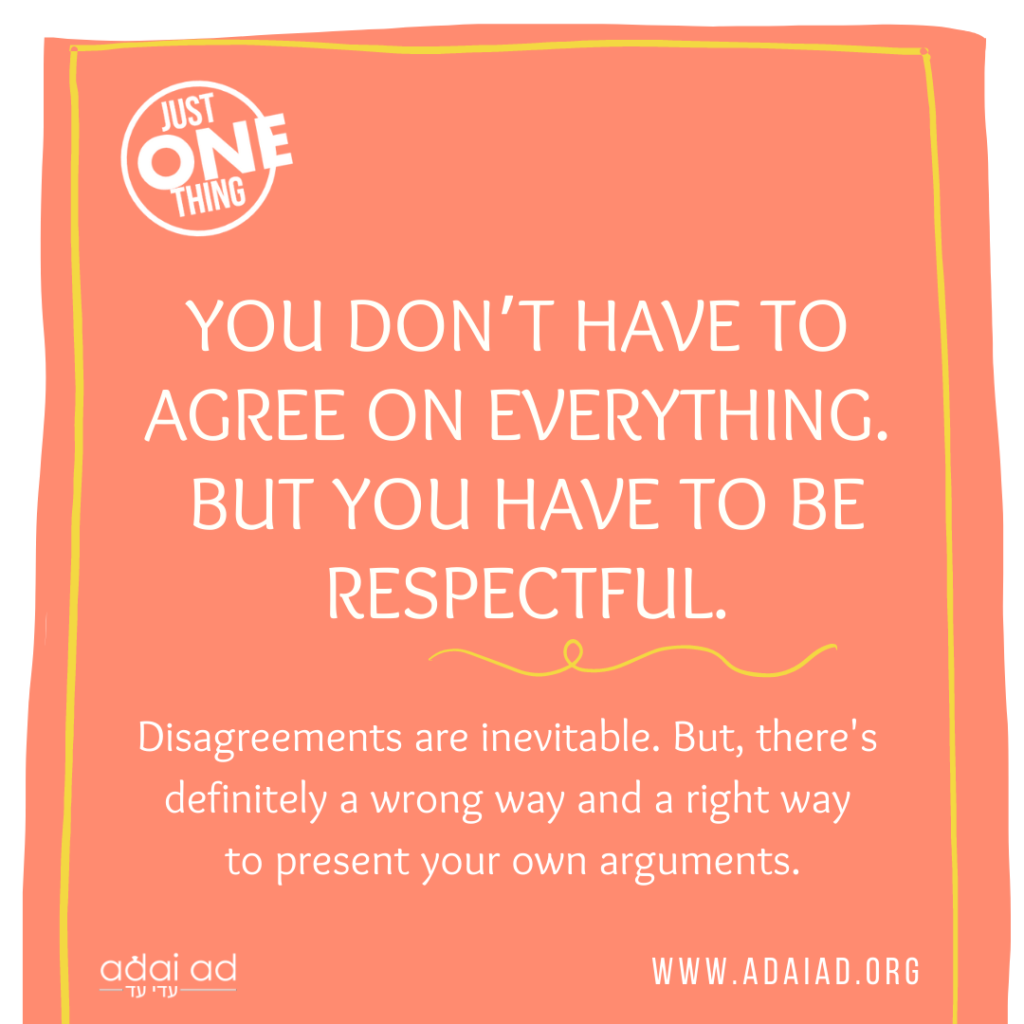Disagreements are inevitable. But, there’s definitely a wrong way and a right way to present your own arguments.
–
Focus on facts and don’t make it personal. A respectful disagreement is one that prioritizes logic over your opinions and emotions about the situation. Staying to facts makes it clear that it isn’t personal. Focus on illustrating why you think the way you do about the issue, not poking holes in the other person’s perspective.
Recognize the good in their point. Just about every idea has at least a nugget of value. Before launching right in with your argument, it’s best if you can preface it with something that you like about that person’s original suggestion — and then use that as a launching point for your own idea. “You are right that we ought to enhance our quality time together. I’m thinking about something different….”
Tune in to what they are saying. Listen to better understand their thoughts about the issue. With shared thinking you may just come up with an even better idea.
Use I statements. The word “you” usually comes across much harsher. Not, “You always come up with changes at the last minute.” Instead, “This is a good idea, but I’m concerned that it is so close to the deadline to make this change.”
Know when to move on. Not every disagreement needs to be resolved, at least not right away. The relationship is more important than this detail. This may not be easy, particularly when you feel strongly about your side. But, sometimes it’s the best thing you can do.


